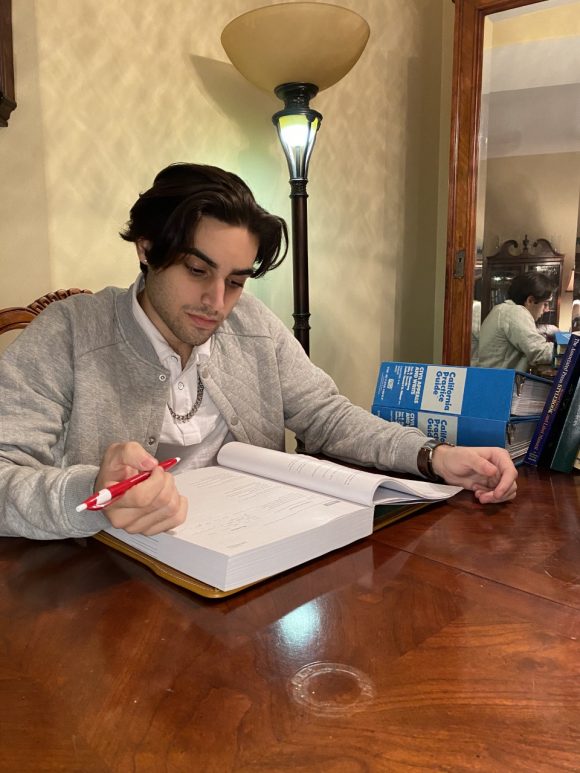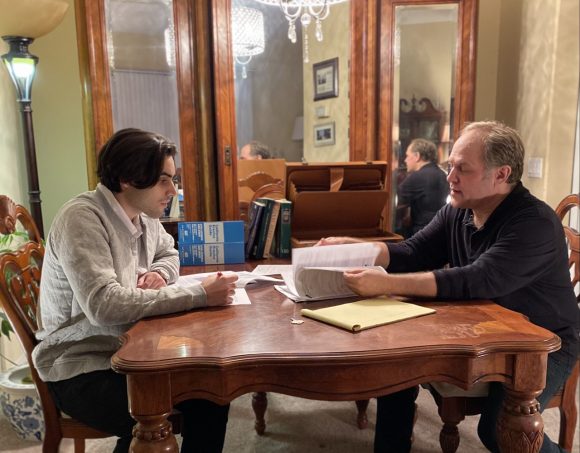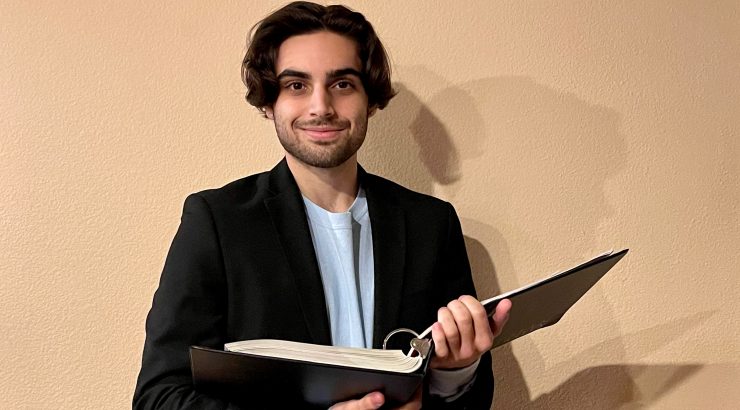The Start of My Long, Long, Long Journey in the Field of Law Dylan Derakhshanian's Internship Experience at the Law Offices of Greg Ricks
January 13, 2021
My end goal in life has always been to be a lawyer. I always saw college as just a method for achieving this goal. But, after taking courses in both Political Science and Communication Studies, I have grown to appreciate the values that these courses have taught me. Whether it be just increasing my general knowledge on these topics, or even complex new ways I have learned to engage with other people, the courses have changed my outlook on effective communication. My name is Dylan Derakhshanian and I am a Senior Political Science and Communication Studies double major. Through my connections from my fraternity on campus, Phi Delta Theta, I came into contact with Greg Ricks, divorce attorney, adjunct professor at Chapman, and, most importantly in my case, an alumni of Phi Delta Theta.
We pride ourselves with keeping alumni of our chapters close to our operations and events. Greg, despite not being from our chapter at Chapman, helped many operations of our chapter such as event planning, legal matters, and risk management. He graciously offered me a position as his clerk at his law office for the semester to learn the nuances of law and the legal processes a lawyer must undertake along with helping my preparation for the LSAT.

Studying for the LSAT with supervision and advising from the principal
My main responsibilities are assisting the principal, Greg, in his daily tasks as a divorce attorney such as litigation, having calls with clients regarding court proceedings and hearings, and the process regarding how a crime is brought to court. Despite the widespread changes that coronavirus has imposed on both our personal and professional lives, my duties were basically the same as they would have been in a non-pandemic period. Most of the work we did together included going to a government building to speak with someone regarding a case, looking over paperwork and court proceedings for ongoing cases, and discussing the nuances of a case and speaking with those involved.
My courses in communication, although helpful in general conversation as well, were especially helpful in effective conflict resolution. As I learned in my Group Communication course, conflict is inevitable when working with others, but it is not always negative. Conflict is defined by a struggle between interdependent parties who perceive incompatible goals. This could just mean that group members are attempting to find the ideal solution to their problem. Conflict means that the parties in a group are trying to find the best solution to their problem and allowing every member to have a say could help solutions arise that many of the members never even considered. Whether it be with Greg, a client, or even just a random person walking down the street, these lessons in conflict and conflict resolution have shown me not to avoid conflict, but to manage it in an effective way to result in a desirable outcome for both parties.

Going over the details of a case with Greg in preparation of a court hearing
By far, the most useful tool I learned from my experience at the Law Offices of Greg Ricks was critical thinking. This may sound vague but many people do not have this skill. Greg showed me that, especially in the field of law, the answer may not be staring right at you. You need to collect all of the information you have at your disposal and then impartially attempt to connect the pieces together to form the bigger picture. One time in particular, Greg and I met with a tenant at a house that was involved with one of our ongoing cases and I did not think it was important at all. This was until Greg debriefed me after our meeting and asked me about what, I thought, were innocuous details about the meeting we had until I understood the big picture and meaning of the words of the tenant and how they related to the case.
Although it may seem impossible with the current times we live in, getting an internship is not as difficult as one may think. Whether we are in the middle of a pandemic or not, the best method to join this field and find internships is building connections. Whether it be someone you talk to once, or a family friend that you know practices law, reach out to them. Most people are willing to give students guidance, whether it be an internship or even just some advice. Following-up and actually showing interest toward those in this field is the most reliable way to build connections and begin a career in law.


